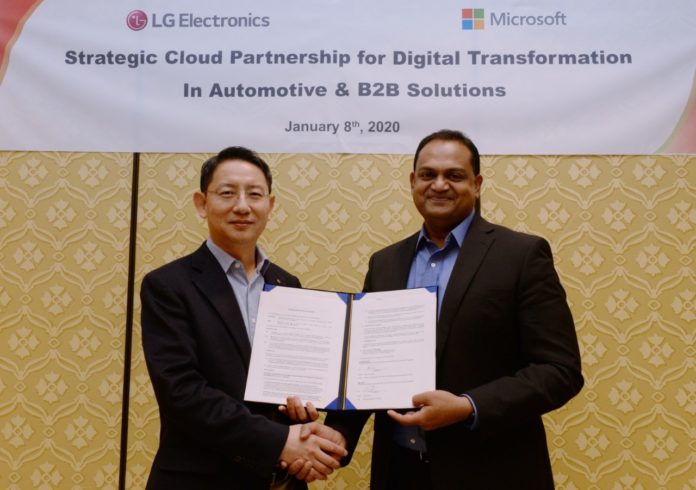LG Electronics is working with Microsoft to build its automotive infotainment systems, building management systems and other business-to-business collaborations, leveraging Microsoft Azure and AI services.
LG started last year its collaboration with Microsoft to enhance and further grow the South Korean firm’s autonomous vehicle and infotainment system business. LG will expand the scope of new projects beyond the automotive sector and further into the commercial space.
Also, LG plans to enhance its management systems to enable its Building Energy Control (BECON) system to manage and control HVAC (heating, ventilation, and air-conditioning) systems more efficiently using Azure.
While extending its BECON system around the world with Microsoft’s support, LG will develop the next version of BECON with Azure data and hybrid cloud + AI services.
The integration with Azure will further enhance LG’s in-vehicle infotainment solution. This builds on the combination of LG’s webOS Auto and the Microsoft Connected Vehicle Platform for the next generation of connected vehicles.
For the next version of webOS Auto, LG will provide various additional HMI (human machine interface) experiences, especially in the in-vehicle entertainment and work efficiency areas.
“Our work with Microsoft will help drive competitiveness and the digital transformation for LG’s B2B areas, which represent the growth engine for the future,” said Lee Sang-yong, SVP and head of Automotive & Business Solutions Centre at LG Electronics.
LG’s infotainment systems will integrate virtual personal assistant technologies from LG with the Microsoft virtual assistant solution accelerator and automakers’ own personal assistants to enhance their brand experiences and provide various connected services to end users. This innovative HMI software platform is designed to advance the monetisation of new digital services.
Sanjay Ravi, general manager of Automotive Industry at Microsoft, said LG is fostering innovation and providing their customers with new value-added services by building their own digital capabilities and data-driven culture.
















